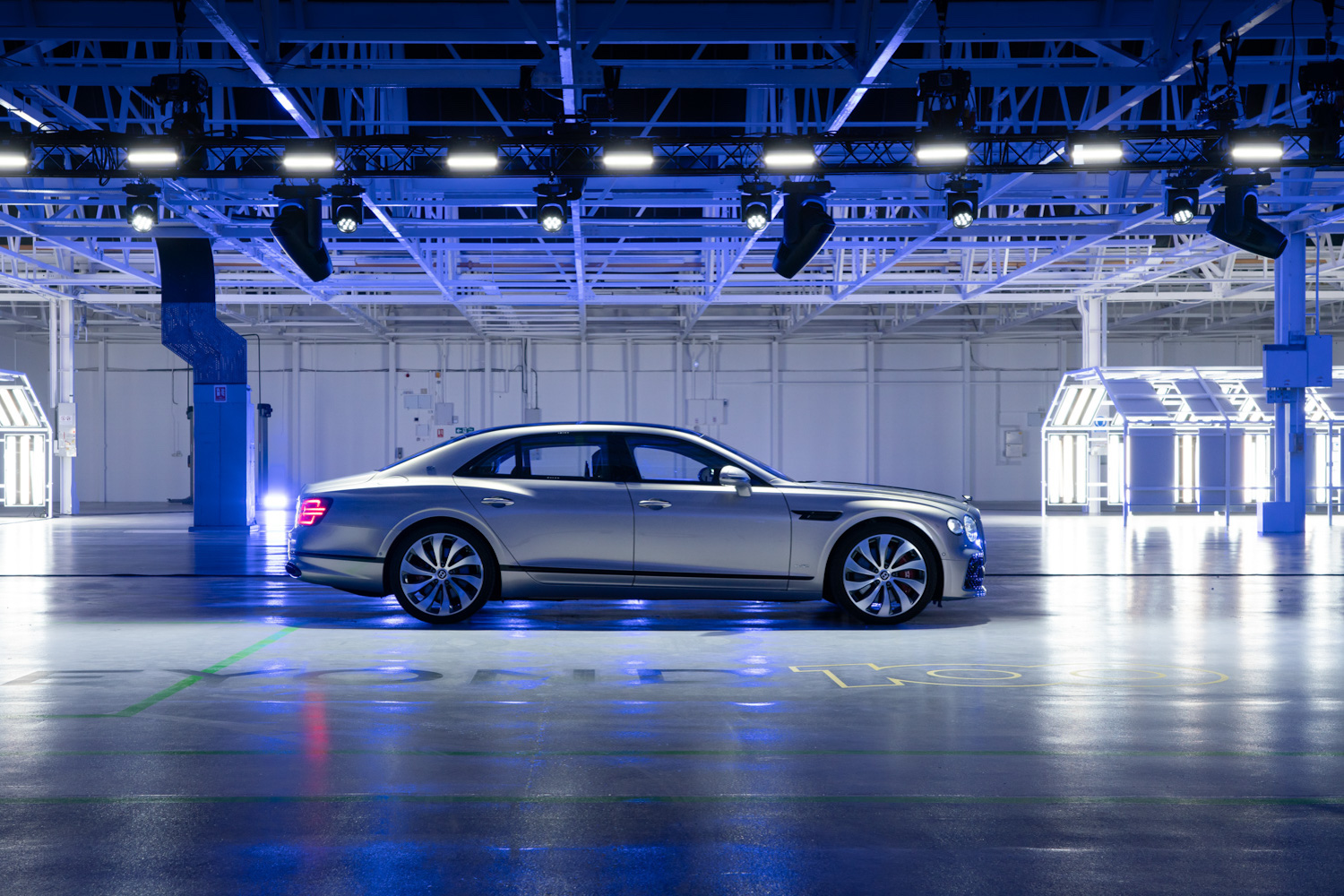Bentley has outlined its 'Beyond100' plan for the future of the company, and it's a future that includes both full electrification of its lineup by 2026, and carbon-neutrality by 2030.
Fully-electric by 2030
By full electrification, Bentley means that by 2026, it will only produce and sell either plug-in hybrids or fully-electric battery-powered vehicles. By 2030, the luxury firm says that it will make only electric cars saying that means; "Evolving from the world's largest producer of 12-cylinder petrol engines to having no internal combustion engines within a decade, reinventing itself as a leader in sustainable luxury mobility." Rival Rolls-Royce has already affirmed a similar plan to shift to electric power in the coming decade.
Bentley claims that its home factory in Crewe, in the north-west of England, is already the UK's only fully carbon-neutral car factory and that while it was setting that up, it has also; "grown to operate in more markets than ever before, 68, while creating a long-term, consistent, sustainable business model, a truly solid basis to build for a second century." That's a pertinent statement to have right at the top the announcement of its future plans, not least because rumours have been swirling that the current Volkswagen top-brass wants to start selling off some of its luxury and sporting car brands - Lamborghini, Bugatti, and Bentley. Is this announcement part of a long-term plan to make Bentley more appealing to an outside purchaser?
That question is for the future, but for now, Adrian Hallmark, Chairman and Chief Executive Officer of Bentley Motors, says that the brand will be looking to its historic roots as it sets out on this new carbon-neutral endeavour. "Since 1919, Bentley has defined luxury grand touring. Being at the forefront of progress is part of our DNA - the original Bentley boys were pioneers and leaders. Now, as we look Beyond100, we will continue to lead by reinventing the company and becoming the world's benchmark luxury car business. Driving this change includes, and also goes beyond our products, delivering a paradigm shift throughout our business, with credibility, authenticity, and integrity. Within a decade, Bentley will transform from a 100 year old luxury car company to a new, sustainable, wholly ethical role model for luxury."
'End-to-end' carbon-neutral
Bentley says that it wants to be an 'end-to-end' carbon-neutral brand, and that begins with launching more electric models. Already, there is a plugin-hybrid version of the Bentayga SUV on sale, and PHEV powertrains will shortly spread to Bentley's other models, the Continental GT and the Flying Spur saloon, both launching by 2023.
Then, in 2025, will come Bentley's first all-electric model. This will be an all-new model, likely a saloon or fastback, and will probably be based on the same electric chassis as the Porsche Taycan and Audi e-Tron GT. Bentley, of course, already shares engine, electrical, and chassis hardware with its fellow Volkswagen Group brands.
That model, says Bentley, will be a 'cradle-to-grave' carbon-neutral car, made from carbon-neutral components, in a carbon-neutral factory, and carefully recycled at the end of its useful life. All of Bentley's suppliers will have passed a sustainability audit, verifying their sustainability credentials. In the future, by the end of 2025, the company intends to reduce its factory environmental impact by focusing on energy consumption, CO2 emissions, waste water, use of solvents in the paint process and becoming plastic neutral, and the aim is for the factory to become 'carbon-positive' (i.e - actually reducing the emissions of carbon into the atmosphere overall) by 2030. Already at Crewe, Bentley has implemented such eco-friendly strategies as a water recycling system in the paint shop, local tree planting, installation of a 10,000 solar panel carport, taking the total number of on-site solar panels to 30,000, and a switch to renewable-only electricity sources.
Redundancies
All of this effort will cost investment cash, and that at a time when the global motor industry is hobbled by the effects of the COVID pandemic. To free up funds, Bentley is letting people go, but hopefully, fewer than it thought. A previously-announced voluntary redundancy programme for 1,000 employees was eventually trimmed to 800 employees and 200 outside contractors. Bentley had thought that a further ten involuntary redundancies would have to be made, but says that it is now trying to work out how to avoid that. Given the reliance for employment in the Crewe area on Bentley, that would be a welcome bit of news. Bentley says that it still hopes to turn a profit in 2020 and that it is; "Committed to handcrafting cars in Crewe for the next 100 years, whilst also preparing for a digital future, and has confirmed it will be investing in two new Research and Development buildings, a vehicle test centre and a dedicated launch quality centre. This expansion and greater focus on digitalisation reinforces Bentley as a values-led organisation, matching customer values of sustainability, innovation and collaboration, which is more important than ever in a digital world."
In digital terms, the company says that it is working to create; "Connected services individual to the customer achieved through product visualisation, co-creation and a digital journey. This will deliver a truly 360 degree, curated customer experience" and that its bespoke Mulliner operation will begin expanding into using more and more sustainable materials in the creation of bespoke customer cars. Some of those have already been previewed by last year's EXP 100 GT car, made to celebrate Bentley's 100th anniversary, and include 5,000-year-old copper-infused Riverwood, traditionally produced wool carpets and a leather-like textile upholstery made from a bi-product of wine-making. "Bentley will continue to use only sustainably sourced materials throughout its current, and next generation of cars" said the company in a statement.









